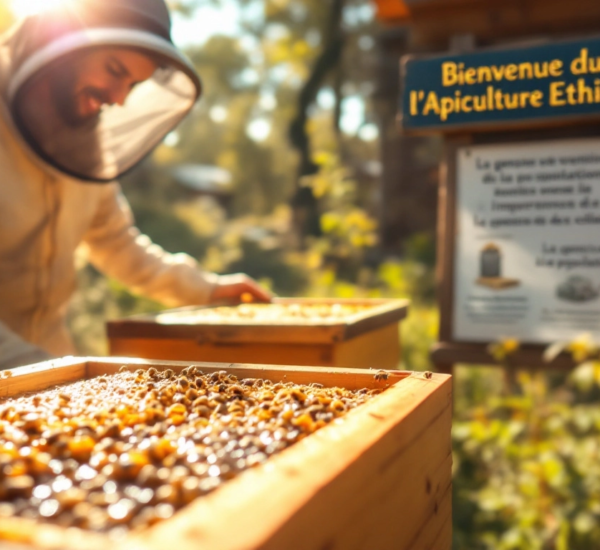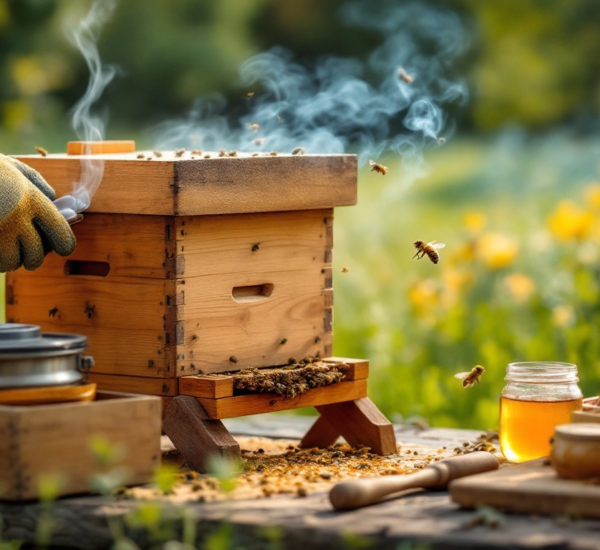Did you know that the global demand for chemical-free honey has surged by over 40% in recent years? This rising interest in natural, sustainable products reflects a broader movement toward eco-conscious lifestyles—and beekeeping is no exception. At the heart of this movement is chemical-free hive management, a practice that prioritizes natural solutions to ensure healthier hives and honey production.
Chemical-free beekeeping is not just a trend; it’s a sustainable approach that benefits both the environment and the bees themselves. By avoiding synthetic chemicals and adopting natural methods, beekeepers can help protect pollinators while producing higher-quality honey. In this article, we’ll explore the core of chemical-free beekeeping, its benefits, challenges, and methods, along with inspiring success stories from beekeepers who have turned this philosophy into practice. Let’s dive in!
Table of Contents
- What Is Chemical-Free Beekeeping?
- Benefits of Chemical-Free Beekeeping
- Challenges of Adopting Chemical-Free Practices
- Effective Methods for Chemical-Free Hive Management
- Inspiring Success Stories from the Beekeeping Community
- FAQs about Chemical-Free Beekeeping
What Is Chemical-Free Beekeeping?
Chemical-free beekeeping is a mindful approach to hive management that eliminates the use of synthetic chemicals to combat pests, diseases, or any other challenges bees face. Instead, beekeepers rely on natural solutions to promote the health of their colonies.
Importance of Maintaining Natural Hive Health
The primary focus of chemical-free beekeeping is improving the bees’ resilience by fostering a healthy, natural environment. Healthy hives are better equipped to combat threats like pests or disease without reliance on harmful treatments.
Comparison Between Chemical-Free and Conventional Beekeeping
Traditional beekeeping often leans on chemical solutions to address issues like Varroa mites. While effective in the short term, these treatments can have long-term consequences, such as contaminating honey or weakening bee immunity. In contrast, chemical-free beekeeping champions natural solutions that prioritize internal hive health and sustainable practices. Learn more in our Natural Beekeeping Basics.
Benefits of Chemical-Free Beekeeping
Why are more beekeepers shifting toward chemical-free methods? Let’s take a closer look at the key advantages.
Healthier Bees and Honey Production
Eliminating chemical treatments ensures that both the bees and their honey remain free of contamination. This results in a healthier colony and premium-quality honey for consumers.
Reduced Environmental Impact
Conventional beekeeping chemicals can seep into the soil and groundwater, negatively affecting ecosystems. Chemical-free hive management minimizes this risk, supporting biodiversity and a cleaner environment. Learn more about environmental benefits of sustainable farming.
Economic Benefits Over Time
While chemical-free beekeeping may require an initial investment in education and tools, it can save costs in the long run by reducing the need for expensive treatments or replacing unproductive colonies.
Challenges of Adopting Chemical-Free Practices
Transitioning to chemical-free hive management comes with its own set of challenges, but these can be addressed with thoughtful planning and patience.
Managing Pests and Diseases Without Chemicals
Pests like Varroa mites are a significant hurdle for beekeepers. Using natural alternatives demands vigilance and knowledge of effective management techniques.
Time and Effort in Monitoring Hive Health
Chemical-free beekeeping requires considerable time devoted to hive inspection and proactive maintenance. This can be demanding, especially for new hobbyists.
Resistance from Traditional Beekeeping Communities
Conventional beekeepers may be skeptical of chemical-free practices, leading to a lack of support or guidance. However, growing networks of like-minded beekeepers can offer support—discover common solutions in our Common Beekeeping Problems and Solutions.
Effective Methods for Chemical-Free Hive Management
Making chemical-free beekeeping work involves using proven techniques to maintain hive health and prevent major issues.
Natural Pest Control Methods
Essential oils like thymol and tools like screened bottom boards can help prevent pests without harming the bees or their environment. Learn more about it in this organic pest control guide.
Hive Inspection and Proactive Maintenance
Routine inspection allows beekeepers to identify and address potential problems early. This reduces the likelihood of larger issues arising.
Incorporating Genetics
Using pest-resistant bee breeds can enhance the overall health of your colonies. Select breeds specifically bred for natural resilience against common pests and diseases.
Inspiring Success Stories from the Beekeeping Community
Let’s draw inspiration from beekeepers who have successfully adopted chemical-free practices.
A Small-Scale Beekeeper’s Journey
One beekeeper in the Midwest managed to grow their operation from one hive to 15 while adopting fully sustainable, chemical-free methods. They reported healthier bees and increased honey yields within two years.
A Commercial Operation’s Transition
A commercial honey producer in California made the bold decision to transition to chemical-free beekeeping after noticing the environmental toll of chemical treatments. Today, their honey is a premium product sold in eco-conscious markets across the country.
Lessons Learned
Both stories underline the importance of patience, research, and community support in succeeding with chemical-free practices. Explore more inspiring stories on our Beekeeping Case Studies.
FAQs about Chemical-Free Beekeeping
What are the advantages of chemical-free beekeeping compared to traditional methods?
Chemical-free beekeeping produces purer honey and healthier colonies while reducing long-term environmental harm.
How do chemical-free hive management practices prevent issues like Varroa mite infestations?
Natural solutions such as essential oils, good hive ventilation, and pest-resistant bee breeds help reduce the impact of Varroa mites.
Are there specific tools or products best suited for natural beekeeping methods?
Yes, essential oils like thymol, screened-bottom boards, and tools for regular hive inspections are ideal for chemical-free beekeeping.
Can chemical-free practices be applied successfully in large-scale operations?
Yes, many commercial beekeepers have successfully transitioned to chemical-free methods. Strategic planning and scalable solutions are key.
Is chemical-free beekeeping more expensive than traditional practices?
Initially, the costs may be higher due to the learning curve and need for specialized tools, but the long-term financial and environmental benefits often outweigh the initial investment.
Conclusion
Chemical-free beekeeping is more than just a sustainable practice—it’s a lifestyle commitment that prioritizes the health of our bees, the environment, and our communities. From producing healthier honey to reducing ecological harm, the benefits far outweigh the challenges. While transitioning to these methods may require effort, the results—like stronger colonies and a greener planet—make it worthwhile.
If you’re eager to start or refine your chemical-free beekeeping journey, explore additional resources, or share your story, the time to act is now. Together, we can create a buzz for a healthier, more sustainable future. Ready to take the leap?




